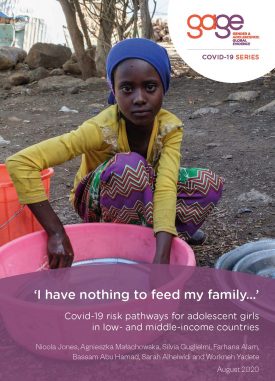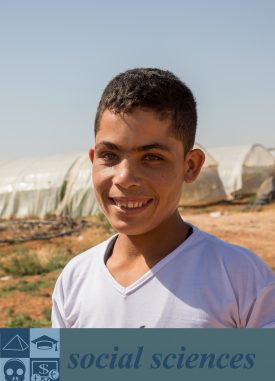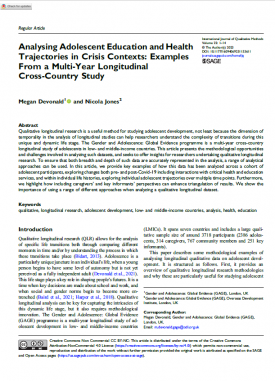COVID-19 has caused profound health, social, educational and economic devastation around the world, especially among the lives of adolescents in low- and middle-income countries. This paper looks at a wide array of outcomes impacting adolescents’ daily lives including health (mental, physical, sexual and reproductive health, vaccine perceptions and overlap between these topics), social relationships (family and peer), education and socio-economic disparities. Both scientific and grey literature between December 2019 and February 2022 were sought from PubMed, Google Scholar and organisations conducting research among adolescents, and coded. A total of 89 articles were included, 73% of which were peer-reviewed; 37% of the articles were from WHO’s Western Pacific region; 62% of the articles were cross-sectional; 75% were quantitative. Three major topics emerged in more than half the articles: mental health (72%), education (61%) and socio-economic ramifications (55%). However, there were regional differences in topics and many of them overlapped. The results indicate that, where there has been research, almost all findings have been linked to worse mental health during the pandemic. Overall, remote education was seen as a negative experience. The ramification of school closures on future aspirations, in particular early school leaving, highlights the importance of prioritising education during future pandemics based on the situation within the country. Gender and other disparities have made marginalised adolescents vulnerable to the economic ramifications of containment measures. Given the risks identified, there is a pressing need to put adolescents at the centre of establishing priorities for their health agenda for post-pandemic recovery.
Suggested citation:
(2023) ‘Assessing the health, social, educational and economic impact of the COVID-19 pandemic on adolescents in low- and middle-income countries: a rapid review of the literature’, Sexual and Reproductive Health Matters, 31:1, (DOI: 10.1080/26410397.2023.2187170)


